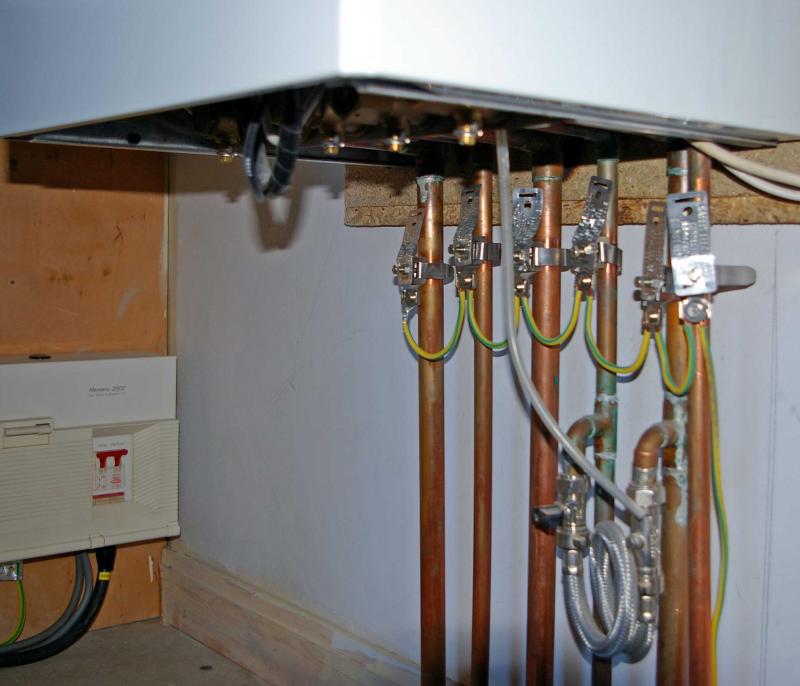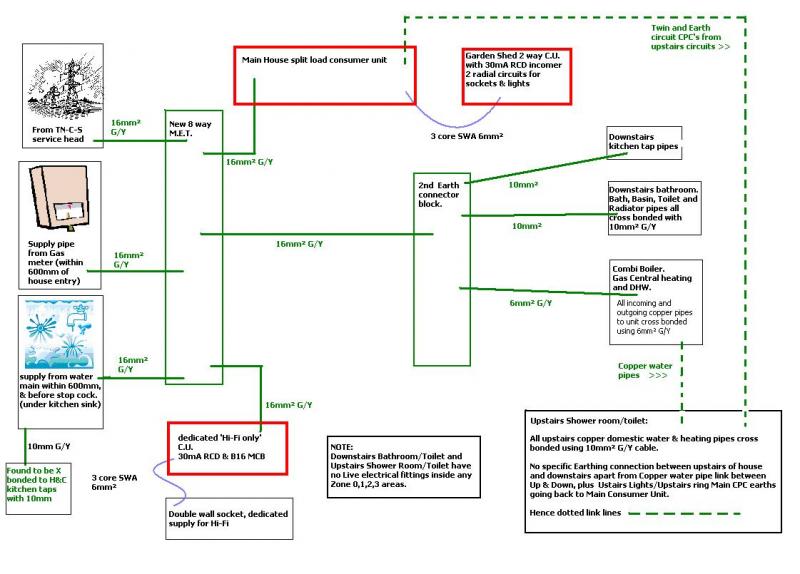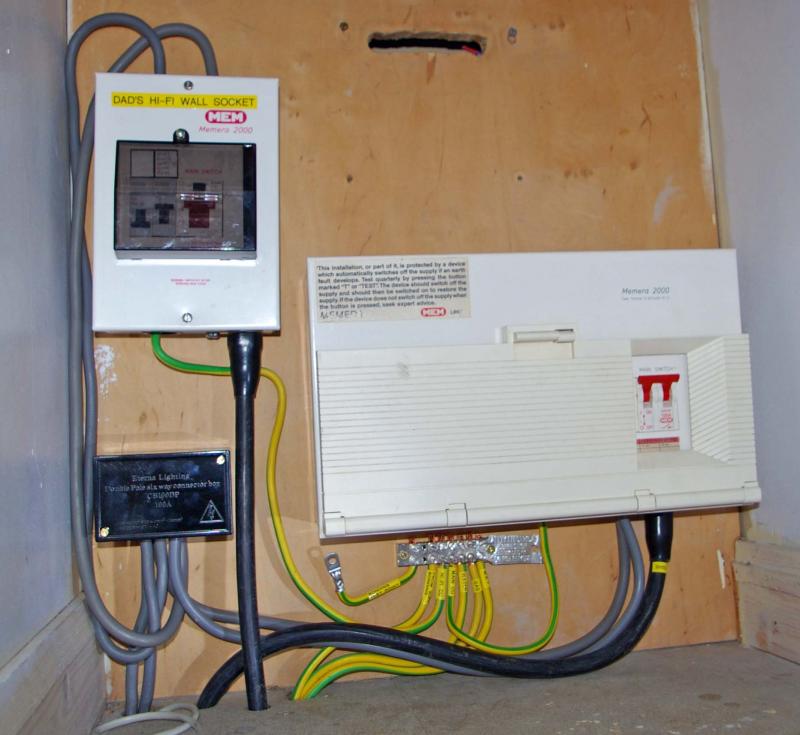It's great working shifts
It is a fundamental requirement of the IEE regs that the earthing and bonding should have been checked before any alterations or additions are carried out.
I take it he gave you the electrical installation certificate?
I hear what you are saying.
I also don't know why there are 2 earths from the CU to the MET, however I did used to have 2 x CU's before, a normal one and a seperate one for the economy 7 strorage heaters so the spark probably used both for the new single split load CU.
I work within 'very' strict rules and regs in the Commercial Aircraft maintenance industry. However like all things we do there has to be a certain amount of common sense applied, I've been doing my job for nearly 25 years now, my experience is worth more than any qualifications and authorisations that I posses, luckily I have plenty both though...
I very often have to Certify and over-sign jobs as an inspector that i haven't actually done myself, luckily i totally trust the guys who i work with. They often have to do the same for me...
My existing electrical installation seemed perfectly functional and i could have legally gone on using it for many more years to come. When i decided to get power out to the shed after years of wanting to do it i decided that the house electrics should be looked at more closely too, this is why i got the CU upgraded.
My spark seemed like a decent bloke, I have enough electrical experience through my own job to speak to him on the same level. I employed him via a boxed advert in the local yellow pages. I even offered to pay him cash on completion , but he was having non of it , insisting that he would issue my with an invoice, i could pay him via cheque and he would then issue an official company reciept , detailing work carried out., Quote: " To keep all of the papework striaght. i.e. He wasn't just a geezer i met down the pub who used to do a bit of sparking a few years ago
I did have the odd look to see what he was upto , just for my own interest more than anything else, nothing worse than somebody looking over your shoulder all the time when you are trying to get a job done. In fact i even gave him a hand to route some of the tails etc under the floors ( sparkies obviously don't like getting dusty
I've made full use of my new toys , namely a Megger 320 RCD tester and LT7 Loop Tester. When i follow the instruction on the instruments user manual and also guidlines in my Amicus Pocket testing guides everything seems to check out OK, giving readings that seem to be well within acceptable limits. I've not done all of the High current Loop Tests though- need to do a bit more reading for that. The low current auto tests seem to be OK.
The bottom line is that i feel that my House electrical installation is now much more safer than it was early last week. My old re-wirable fuses have gone ( some of which were over rated - the old shower circuit was shockingly illegal & dangerous !) and I've got MCB protectin on all circuits and effective RCD protection on all of the ones that really need it ( all house, garden & shed socket outlets) - this can only be a good thing in my view.
Sure i have discovered a couple of minor things with the earthing and bonding that that require rectifying, however the important things is that they they 'have' been discovered and that they 'will' get rectified, and mostly thanks to the helpful and friendly advice i've been given on this discussion forum
Best Regards






